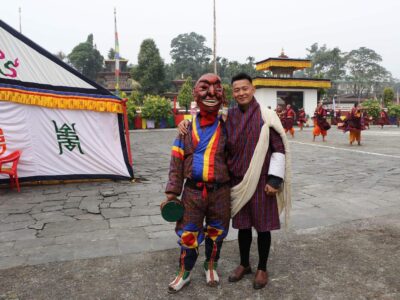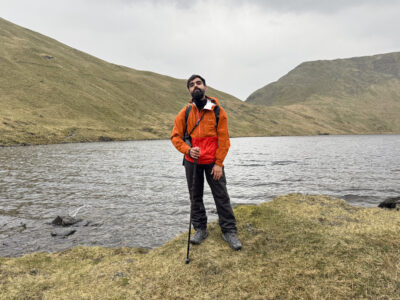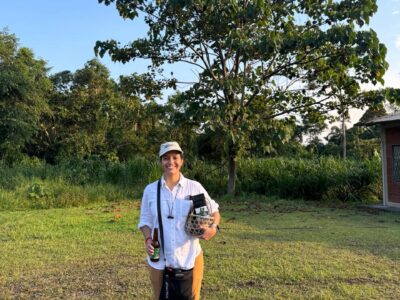
By Tamar Aharoni
With robust international experience as an engineer in the mining industry, Josefina Correa (’20) decided to join the Master of Public Administration in Environmental Science and Policy (MPA-ESP) program at Columbia University. After consulting for some of the largest mining projects in Latin America, she is looking to gain the skills and knowledge that will allow her to provide sustainable solutions to the challenges the mining industry faces.
Tell us about your background — what have you been doing before coming to MPA-ESP?
It all started when I decided to study engineering for my undergraduate degree. I am a problem-solver, and I wanted to study something that would allow me to solve problems while helping others. That is what drew me to engineering. During my studies, I realized that I wanted to specialize in mining. Chile, where I come from, is a world leader in the mining industry and I felt that it is a space where I can make a huge impact in my country. It is a complex and dynamic industry, that is very connected with nature, and my interest in biology — in understanding how humans are connected with what nature is giving us — made it a fascinating choice for me.
After obtaining my engineering degree, I worked with various consulting companies from international private companies to local public ones. I got to learn about the many considerations that need to be taken into account when developing a mining project beyond profitability, such as political, social and environmental considerations. A mining project has a huge impact on the local population and it must operate in cooperation with it, rather than in isolation from it.
How did these experiences shape the way you view sustainability and its role in the mining industry?
The opposition of local communities to mining projects is directly related to environmental issues, whether it is their concern for quality of water in the area or something else. The environmental problem is usually the starting point that causes the opposition. But it is more complex than that because, at the end of the day, we do need these materials. We cannot stop all the extraction and stay as we are. Therefore, the challenge is to try to find a path to make it work, but in a way that is not as harmful.
Sustainability is becoming more important to mining companies. They just need to be pushed a little bit more. And we need to come up with solutions because even if they know they need to be more environmentally friendly, they don’t know how to do it. Looking for ways to make it more sustainable is difficult, but I think it is possible, and that is exactly what I want to do.
Has growing up in Chile influenced you in taking an interest in the mining industry? And how?
I believe that having grown up in Chile allowed me to be exposed to this industry and to be aware of the impacts that it has on developing countries. My personality seeks challenges and the mining industry poses a big challenge in Chile. That is what attracted me to work in this industry and not in something else.
What made you want to apply to the MPA-ESP program?
The science part of the program attracted me. For example, before this interview I had hydrology class — a crucial subject for me, because the mining industry is very intensive in the use of water for mineral processing and therefore has an extensive impact on water resources.
Despite the fact that I have a science background and I studied engineering, I never had the opportunity to actually dive deep into the real environmental problems that we are facing nowadays. I think that it is very important for me to get a broader understanding of scientific issues going ahead in my career.
In general, I think this program is a great mixture because it also touches on economics, which is crucial for policy makers, and management, which is something I never got to study as an engineer. Science, economics, and management form an ideal triangle for me.
What has your experience been like during the summer semester so far? What classes or activities are you looking forward to in the fall and spring semesters?
The biggest highlight of the summer semester for me has been my climatology class. I think the professor is very engaging; he really got us involved in his classes. I find climatology very useful because it gives you an overall picture of how all these little things affect the whole system. If I want to go back to Chile and try to solve environmental problems, I have to understand how we got there and how the starting points affect the big picture.
For next semester, I would love to take a course about extractive industries with Lisa Sachs. Overall, I’m still contemplating whether to focus on more specific courses related to mining or to delve into something new for me like climatology, which I am now so interested in after the summer course.
Where do you see yourself going after graduation?
My previous experience made me realize that I want to work on environmental issues because it is needed and it should be a priority. I believe that the solutions should come from initiatives that consider private/public cooperation, but I have yet to fully discover what is the most effective way of creating an impact. For me, a part of this year at ESP is exactly for that — to start looking for companies from all sectors and to figure out where I can offer the most and achieve my overall objective.
How do you like living in NYC? What do you like to do on Sundays?
I really love New York so far. I think it is a great city with so many opportunities and things to do. I am a very fast-paced kind of person and I think that this city really fits me in that sense. I try to do something different every weekend, that is what I love most about the city, that you can do different things every weekend and the options never run out.
Do you have any advice for students applying to the program or for other people who are thinking about changing their careers to practice sustainability?
My best advice is to get in contact with people that are doing the program and speak with as many of them as you can. Learning from the experiences of others is something that is very useful always, and that applies to any decision in life.
Tamar Aharoni is an alum of the MPA-ESP class of 2019 and a current research assistant for the Earth Institute. Tamar is an experienced research analyst, focusing on the nexus between food systems and climate change.




Has there been any large scale attempts with biomining? Would that be less environmentally harmful than current mining practices?